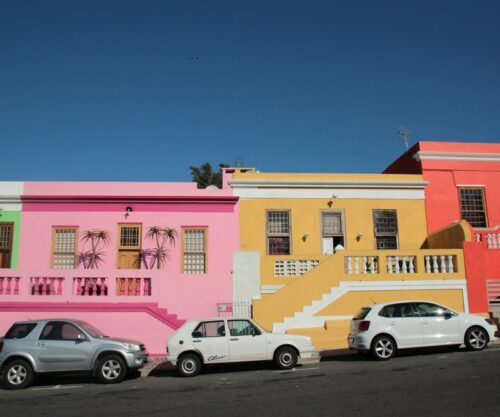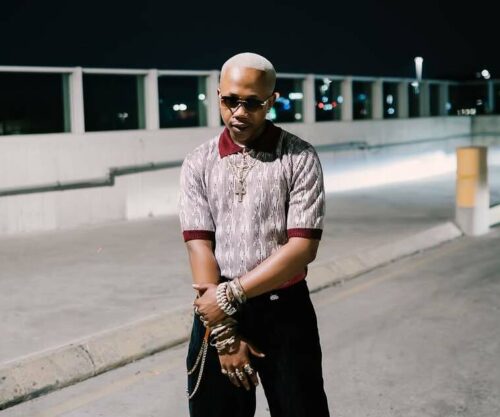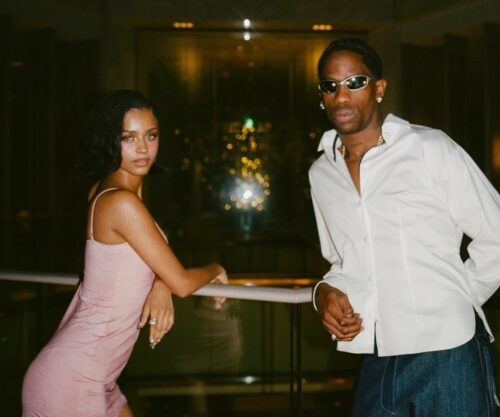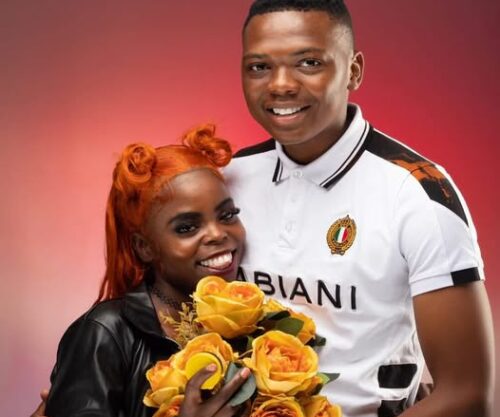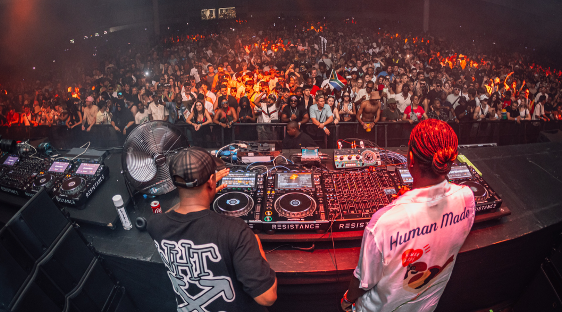
Ten years ago, ULTRA South Africa planted its flag in the fertile soil of a country already rich with rhythm. What began as a satellite event of one of the world’s most iconic electronic music festivals has since evolved into a cultural pillar—one that now stands not just as a celebration of global dance music, but as a stage for Africa’s most innovative sonic exports.
As ULTRA SA celebrates its tenth anniversary, the spotlight turns unapologetically to Afro House—a genre that has travelled far from its underground roots to become the beating heart of South Africa’s dance music identity. From the pulse of the Resistance Stage to the sweat-slicked intimacy of the Clubhouse and Groove Stages, this year’s lineups are love letters to South Africa’s sonic spectrum—threading Afrotech’s hypnotic grit through deep house’s soul-soaked chord progressions, and into the entrancing cadence of amapiano and gqom’s love-child, 3 Step.
What was once dismissed by purists as a “bastardisation of house” now stands tall as the continent’s proudest rhythmic rebellion. At the heart of this evolution are sonic architects like Black Coffee and Da Capo—artists who’ve not only graced ULTRA stages but have redefined them, channelling the spirit of a scene that’s no longer rising, as the world looks up to South Africa’s unique and innovative club cultures.
From the open-air house havens of Johannesburg to the neon skyline of downtown Miami, few artists have charted a course as resolutely global—and simultaneously rooted—as Black Coffee. The Durban-born DJ, mogul and producer has long stood at the intersection of African pride and global recognition, and nowhere is that synergy more evident than in his relationship with ULTRA Music Festival.
It was 2014 when ULTRA South Africa first unfurled its colossal canopies in Cape Town and Joburg, with the Black Coffee moniker etched proudly on the bill—side by side with titans like Tiësto and Martin Garrix as a homegrown hero standing firmly on a platform that had, until then, been the playground of European and American headliners.
In a brief profile for ULTRA’s UNCUT MIAMI series, he offered viewers a glimpse into his world, expressing the fears that often come with blending precision with purpose and art with ancestry, as an Afro House pioneer: and in 2022, went on to become the only dance music producer from Africa to win a GRAMMY in the Best Dance/Electronic Music category for Subconsciously. That same year, he stepped down from the Ultra stage to make room for the young artists coming up behind him, and there have been plenty more to carry the torch.
One of those inheriting the spotlight is Nicodimas “Da Capo” Mogashoa, who gained immense ground at Black Coffee’s Soulistic Agency. Oscillating between his flagship production style of Afrotech-laden gems and resonant deep house under the moniker “Aquatone,” Nico now stands as one of the most in-demand producer-DJS in South Africa and the greater Afro House world. Virtually unknown in the years before social media (aka the Bluetooth era), local fans fought to get whatever the new Da Capo track happened to be that week from anyone who would share it, without really being able to attach a face to the name.
Still, he rose. His debut album Touched, featured producer-vocalist TRESOR for a smash in “Speed of Sound,” re-released with Universal Music in 2016, which pinned Afro House to the mainstream and soared on southern African pop charts. In its wake, he established his ambidextrous approach to world-building from the fallout of fellow producers’ heaters, ushering in the remixing modus that came to be known as “Da Capo’s Touch.” 2017’s Indigo Child was the catalyst for Da Capo’s prominent career, going double platinum, propelling him to perform across the world on massive stages, including Tomorrowland and Coachella.
In all the time since the first “touch”, Afro House has undergone several shifts, rising in quality and reach as it travelled, taking on newer audiences as South Africa prepares to own yet another dance music renaissance. At ULTRA Johannesburg in 2024, he describes a moment he’ll never forget, performing alongside global Afro House advocate Kitty Amor:
“For some reason, the weather agreed with us when we started playing. The Resistance stage is the only indoor stage, whereas the others are outdoors. So there was a stampede, literally in the corridors, when it started to rain and people came in for shelter. That was one of the most beautiful moments for me during ULTRA for sure. To play with Kitty on that stage and to see the amount of energy during that set was incredible. And it immediately stopped raining after our set. I told my team, look— this one comes from the creators; it has to have come from the ancestors because there’s no way that was a coincidence. That moment definitely came from high above, for sure. It was the best experience ever.”
@dacaposa Da Capo B2B Kitty Amor #UltraSA2024 #dacapo # Capoholics #electronicmusic #housemusic #afrohouse #afrohousemusic #afrotech #fyp #tiktok ♬ original sound – Da Capo
Now, with Indigo Child Part 2 slated for release with PLATOON in 2025, which he hopes to tease at this year’s RESISTANCE stage, Da Capo is poised to show just how much the genre (and he himself) has evolved. As he reflects on that transcendent back-to-back set with Kitty, the music has never just been a good time; it’s been divine intervention, as ULTRA becomes known for prophesying global powerhouses.
“Indigo Child Part 2 is an exciting album. I feel like this is a project where I invested so much of myself, my passion and my time, with a lot of different artists. It took me 6 or 7 years to make this project, and with it, I was trying to find myself. This one is super different from the first part, because now there are multiple subgenres and styles. I’m nervous –I don’t know how people are going to take it, but at the end of the day it’s just me, expressing myself through the music.”
Many African DJS have expressed that flicker of fear before defying odds on Ultra stages, and history has shown just what happens when they’ve channelled those doubts into the decks. Now at the pinnacle of electronic music’s success, artists such as Desiree, Shimza, Uncle Waffles, Kabza De Small and Thakzin are leading the charge in a new era of African electronic music stardom. There’s no doubt that the next decade will most certainly be louder, prouder, and even more unapologetically African… and Ultra will be there to capture it all
Also see: Pabi Moloi’s guardian angels defend her against questions about her weight

